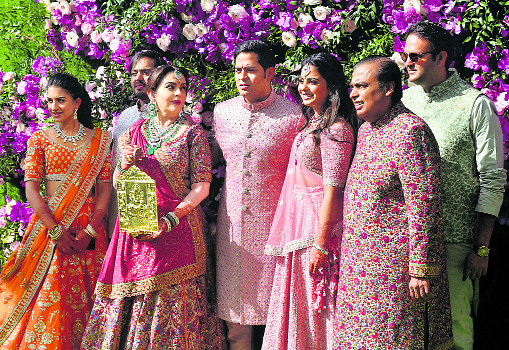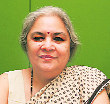
Mukesh Ambani’s daughter reportedly had the world’s most expensive wedding at Rs724 crore.
Roughly 25 years ago, at the height of the Harshad Mehta scam (how far away and small it appears now!), it used to be said that India had a parallel economy. What is worse, while the state economy was in tatters, this parallel economy was thriving and growing from strength to strength. The evidence was there for all to see: the denizens of this shadowy world drove around in swish cars, owned properties in the toniest locations and entertained lavishly. We were told all this was possible because of the infamous licence-permit raj that was presided over by corrupt politicians, bureaucrats and hustlers.
Many decades later, even after sweeping economic reforms and large-scale digitisation, nothing seems to have really changed. The villains of the past have new faces but the world of undeclared wealth, with deep connections inside the system and government, is still flourishing.
It is still early in the wedding season, but I have already been blinded by the scale of some I have attended this winter. The colossal amount of money that is now spent on weddings is probably many times what most middle class folk have been able to save after years of skimping. Forget the jewels and clothes, it is the décor, the food and the cost of hiring a venue that would astound us if only people honestly revealed the amount spent on them. What is amusing, though, is that since they all hire event managers and patronise the same designers and jewellers, one blingy wedding is almost the same as the other. So, whether it is a wedding in the house of a famous industrialist or a film star, a high-ranking politician or a bureaucrat, all the brides look as if they were decked in an assembly line. The food too is the same lavish spread of multiple cuisines and expensive liquors and flowers flown in from Holland or Thailand. In short, they are all aping a Karan Johar extravaganza in different ways. Often, the wedding invitation comes as an artwork, along with expensive sweets and sometimes, I’m told, with silver and gold gifts as well.
I am sure several readers are equally appalled at this vulgar display of wealth. Whatever happened to the modesty of gentlefolk? I recall that Indira Gandhi (whose family was even then among India’s power elite) was married in the courtyard of her ancestral home in Allahabad, wearing a khadi sari made from the yarn her father had spun while in jail. Flowers were her jewellery and the feast (of which I have no details) was probably the traditional Kashmiri food prepared by cooks who were specially hired on such occasions. Right up to the Seventies, India had preserved a certain elegance and restraint in celebrating special events such as weddings and birthdays. It would be interesting to find out when and why the old ways were discarded and a new shining India replaced the old dignified one. The Bombay film industry certainly has an important role here and Karan Johar has a lot to answer for, but somewhere by the Nineties, it was no longer bad taste to flaunt one’s wealth.
I want to add that my angst is not just a case of sour grapes; it is to do with our collective conscience and the laws of good civic behaviour. Forget weddings, the lifestyles of our celebrities make it difficult to believe that a large part of this country is struggling to get by. Yet, far from being socially boycotted, these plutocrats have become the icons that our young aspire to become. As the gates to perdition were slowly opened, living in modest homes, driving a small car and sending children to government schools became the hallmarks of losers. Honesty was no longer a badge of honour but an affliction that blighted your life. Politicians no longer sought honest officers but avoided them for they were not pliant and would not break rules. Each state developed its own nexus of power and fiefdoms were guarded closely. Heads of political parties ceased to give responsibility to anyone outside their own families because power flowed out of the coffers jealously controlled by these tight groups. The politicians who scream most loudly now in our Parliament are very often those who have a long history of crooked deals behind them.
Perhaps Churchill was right when he said India was not fit to govern itself. We may have mastered the art of holding efficient elections and ensuring high turnouts of voters, but how deep is our commitment to the spirit of democracy? We drop Gandhi’s name into every political debate but have we remained true to his lessons? Or even tried to emulate his life? Our politicians may wear khadi and piously promote it, but is this genuflection a style statement or an ideological belief in swadeshi? But why blame India alone? Look around the world and the story is repeated in election after election, the latest being the sweeping victory of the Conservative Party in the UK.
All our neighbouring countries and many in Europe are eager to shrug off the chains that fetter them to an old and unattractive way of life. Ease of doing business is also a polite way of saying push your way ahead, no matter how many hearts and lives you trample along the way.
Join Whatsapp Channel of The Tribune for latest updates.




























